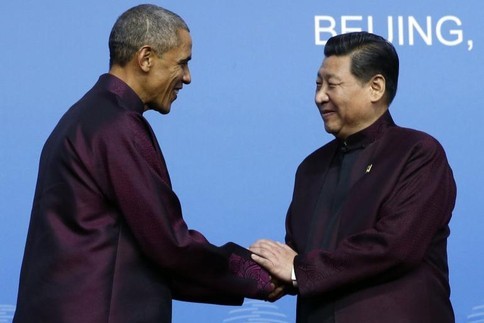Susan Rice, U.S. National Security Adviser, invites President Xi Jinping for a state visit this year, further improving the Sino-U.S. relations.
Analysts believe that a strong relationship between the two countries is a vital key to a stable world order. Rice also said that Obama's national security strategy will "enhance our focus on regions that will shape the century ahead, starting with the Asia-Pacific."
Aside from President Xi, Japan's Prime Minister Shinzo Abe, South Korean President Park Geun-hye and Indonesian President Joko Widodo were also invited.
This is the first White House visit for the Chinese president since he has taken office. This visit is also considered the latest summit between U.S. and China following informal talks in California and Beijing in June 2013 and Nov. 2014, respectively.
Despite U.S.'s intention to promote its "rebalancing" of Asian strategy, analysts stated that China will continue pushing for a new model of country relations.
The former Chinese ambassador to the U.S. agreed that a healthy Sino-U.S. relationship will ensure world order stability.
However, analysts believe that differences between the two countries, especially maritime disputes, cybersecurity, and North Korea's nuclear deployment, will dominate the agendas.
Liu Weidong, a U.S. studies expert with the Chinese Academy of Social Sciences, said that "China has replaced the U.S. as the leading economic influence over the Asia-Pacific region." The U.S. is eager to reassert its influence in the security domain, insisting that it is still the key player in the region, the expert added.
During the his State of the Union address this year, Obama said that the U.S. and not China must write trade rules for Asia.
Liu said that the boundaries of Sino-U.S. relationship have not been defined, and likely to be consolidated on the coming Xi and Obama summit.
Liu added: "China and the U.S. are neither allies nor enemies, and there has been conflicting information about the two countries' relations. Compared with China, the U.S. has been less clear in its attitude toward Sino-U.S. relations."




























